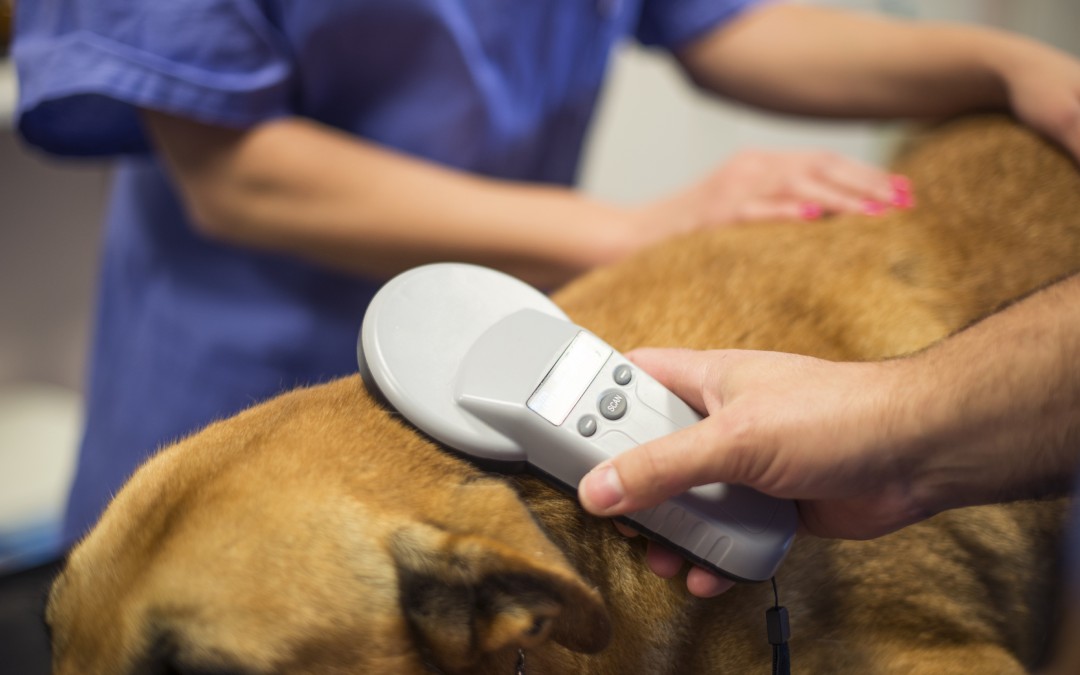Veterinarians around the nation encourage their pet parents to microchip their pets. This includes our team here at Anasazi Animal Clinic. Microchipping isn’t just a fad or a trend. It’s a critical tool that may just reunite you and your best friend if you ever become separated.
A microchip is a small, electronic chip that is encased in a glass cylinder the size of a grain of rice. It is injected by veterinarians in between your pet’s shoulder blades and activated each time a scanner is waved over it. The chip transmits the information on the scanner, which is the identification number that is associated with you and your pet. Microchipping your pet doesn’t hurt them any more than an injection would but it could save their lives down the road.
According to the American Veterinary Medical Association, a study of more than 7,700 stray animals at shelters showed that they were reunited with their owners 21.9 percent of the time, whereas microchipped dogs were returned to their owners 52.2 percent of the time. With cats, it was even more dramatic. Strays were reunited with their owners 1.8 percent of the time and microchipped cats 38.5 percent of the time. In order to make this difference, though, owners must make sure to always keep their information up to date. Have a few numbers on there that you know will never change so you can always be found. This is critical when your pet is microchipped.
While microchipping is an important tool if your pet should get lost or run away, it doesn’t replace licensing your pet through your county’s process. It’s important that your pet have a collar with identification such as your phone number and the pet’s name. The collar should also have the rabies tags provided by the county. The more information your pet’s collar and microchip provide to those who find him the better chance you’ll see him again.
In addition to what we’ve outlined above, there are things you can do to prevent your pet from running away in the first place. During high stress times like the Fourth of July or monsoon season make sure your dog is in an interior part of the home, potentially with minimal windows. This will prevent flashes of light and reduce sounds. Also, always check gates and locks in the backyard to make sure your pet isn’t tempted to go exploring.
If you’re looking for a team of veterinarians to help you get your pet microchipped, contact us today. We’ll help make sure your pet is protected, from nose to tail.

